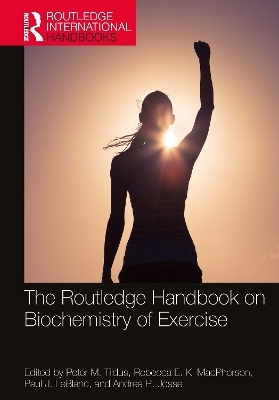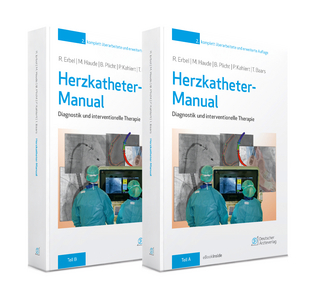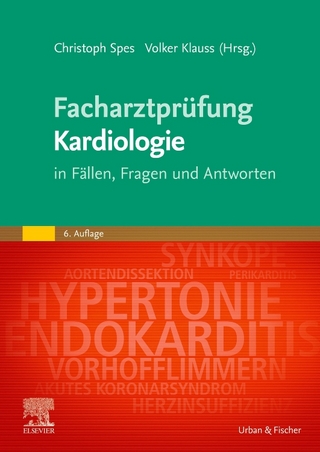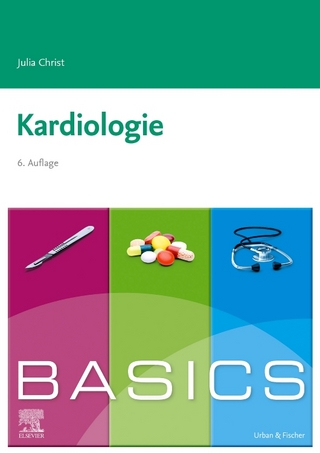
The Routledge Handbook on Biochemistry of Exercise
Routledge (Verlag)
978-0-367-64294-5 (ISBN)
From its early beginnings in the 1960s, the academic field of biochemistry of exercise has expanded beyond examining and describing metabolic responses to exercise and adaptations to training to include a wide understanding of molecular biology, cell signalling, interorgan communication, stem cell physiology, and a host of other cellular and biochemical mechanisms regulating acute responses and chronic adaptations related to exercise performance, human health/disease, nutrition, and cellular functioning.
The Routledge Handbook on Biochemistry of Exercise is the first book to pull together the full depth and breadth of this subject and to update a rapidly expanding field of study with current issues and controversies and a look forward to future research directions. Bringing together many experts and leading scientists, the book emphasizes the current understanding of the underlying metabolic, cellular, genetic, and cell signalling mechanisms associated with physical activity, exercise, training, and athletic performance as they relate to, interact with, and regulate cellular and muscular adaptations and consequent effects on human health/disease, nutrition and weight control, and human performance.
With more emphasis than ever on the need to be physically active and the role that being active plays in our overall health from a whole-body level down to the cell, this book makes an important contribution for scholars, medical practitioners, nutritionists, and coaches/trainers working in research and with a wide range of clients. This text is important reading for all students, scholars, and others with an interest in health, nutrition, and exercise/training in general.
Peter Tiidus is Dean of the Faculty of Applied Health Sciences and a Professor at Brock University, Canada. Rebecca E. K. MacPherson is an Assistant Professor at Brock University, Canada. Paul J. LeBlanc is a Professor in Health Sciences at Brock University, Canada. Andrea R. Josse is an Assistant Professor at York University, Canada.
Section I: Regulation of metabolism and responses to acute exercise
Introduction
1. Whole Body Regulation of Energy Expenditure, Exercise Fuel Selection, and Dietary Recommendations
2. Energy Provision, Fuel Use and Regulation of Skeletal Muscle Metabolism During the Exercise Intensity/Duration Continuum
3. Adipose Tissue (adipokinome), Skeletal Muscle (myokinome) and Liver (hepatokinome) as Endocrine Regulators during Exercise
4. Regulation of Skeletal Muscle Reactive Oxygen Species During Exercise
5. Biochemical contributors to exercise fatigue
6. Mechanotransduction Mechanisms of Hypertrophy and Performance with Resistance Exercise
7. Responses to muscular exercise, Heat Shock Proteins as regulators of inflammation and mitochondrial quality control
8. Signaling pathways in regulation of cellular responses to exercise
Section II: Exercise Biochemistry, Chronic Training, and Athletic Performance
Introduction
9. Exercise-Induced Mitochondrial Biogenesis: Molecular Regulation, Impact of Training, and Influence on Exercise Performance
10. Resistance Exercise Training and the Regulation of Muscle Protein Synthesis
11. Cellular Adaptations to High-Intensity and Sprint Interval Training
12. Regulation of Muscle Satellite Cell Activation and Cycles Consequent to Various Forms of Training
13. Biochemical and Metabolic Limitations to Athletic Performance
14. Genetic Limitations to Athletic Performance
15. The Role of Epigenetics in Skeletal Muscle Adaptations to Exercise and Exercise Training
16. Statistical Considerations and Biological Mechanisms Underlying Individual Differences in Adaptations to Exercise Training
17. Effects of Hypoxia/Blood Flow Restriction on Cellular Adaptations to Training
Section III: Exercise Biochemistry/Nutrition Nexus in Sport and Physical Activity
Introduction
18. Exercise and Dietary Influences on the Regulation of Energy Balance and Implications for Body Weight Control
19. Dietary Manipulation for Optimizing Endurance Training Adaptations and Performance: Carbohydrate vs. Fat
20. Dietary Influence on Muscle Protein Synthesis and Hypertrophy
21. Micronutrients and Nutraceuticals: Effects on Exercise Performance
22. Biochemistry of Buffering Capacity and Ingestion of Buffers in Exercise and Athletic Performance
23. Creatine augmentation for muscle and bone responses to exercise
24. Biochemistry of Caffeine's Influence on Exercise Performance
25. Nutrigenomics for Sport and Exercise Performance
Section IV: Exercise Biochemistry Relative to Health Through the Lifespan
Introduction
26. Mitochondrial Dysfunction in Chronic Disease
27. Exercise training, mitochondrial adaptations and aging
28. Biochemistry of Exercise Effects in Type II Diabetes
29. Biochemistry of Exercise Training and Mitigation of Cardiovascular Disease
30. Biochemistry of Exercise Training and Type 1 Diabetes
31. Biochemistry of Exercise Training: Mitigation of Cancers
32. Biochemistry of Exercise Training; Effects on Bone
33. Metabolic Effects of Exercise on Childhood Obesity
| Erscheinungsdatum | 28.09.2023 |
|---|---|
| Reihe/Serie | Routledge International Handbooks |
| Zusatzinfo | 23 Tables, black and white; 64 Line drawings, black and white; 30 Halftones, black and white; 94 Illustrations, black and white |
| Verlagsort | London |
| Sprache | englisch |
| Maße | 178 x 254 mm |
| Gewicht | 453 g |
| Themenwelt | Sachbuch/Ratgeber ► Sport |
| Medizin / Pharmazie ► Allgemeines / Lexika | |
| Medizinische Fachgebiete ► Innere Medizin ► Kardiologie / Angiologie | |
| Naturwissenschaften ► Biologie ► Biochemie | |
| ISBN-10 | 0-367-64294-8 / 0367642948 |
| ISBN-13 | 978-0-367-64294-5 / 9780367642945 |
| Zustand | Neuware |
| Informationen gemäß Produktsicherheitsverordnung (GPSR) | |
| Haben Sie eine Frage zum Produkt? |
aus dem Bereich


